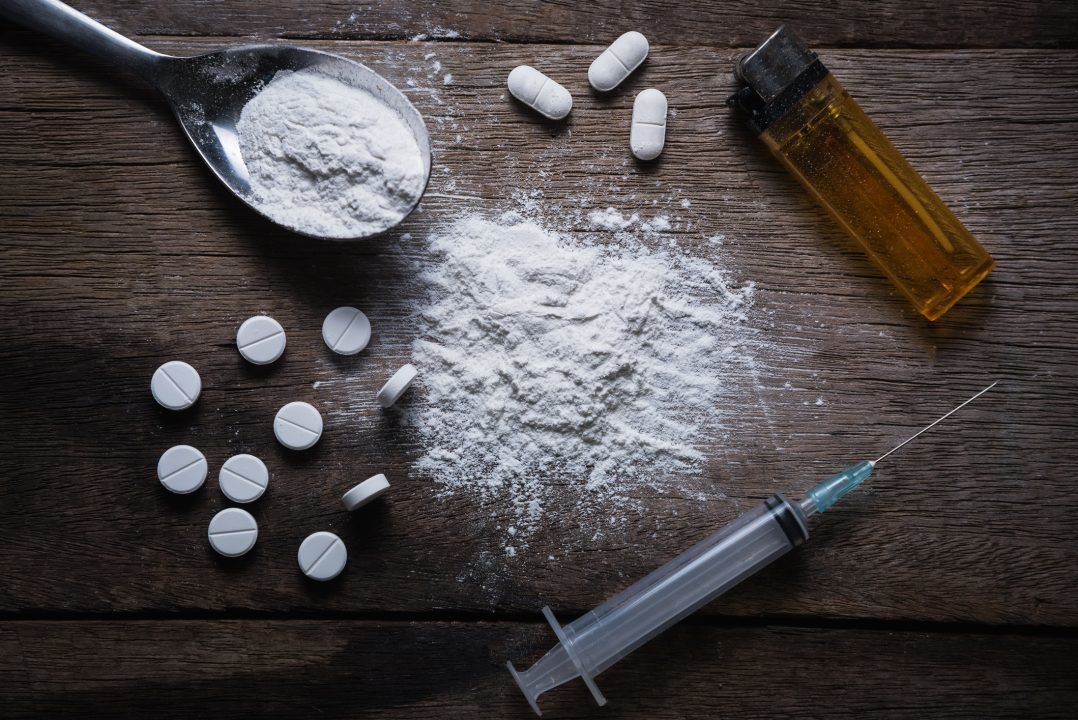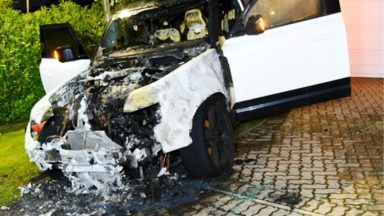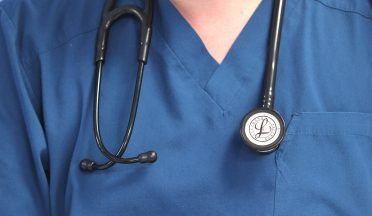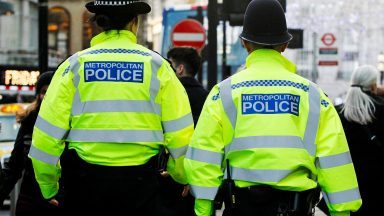The number of suspected drug deaths in Scotland surged by 10% last year, police believe.
There were 1,197 suspected drug deaths between January and December 2023.
This was 10% (105) more than during the same period of 2022 (1,092).
The Scottish Government has been told “well-meaning words won’t stop people dying”.
It comes after a downward trend during the Covid pandemic from early 2021 to late 2022 after drug deaths hit a record high of 1,339 in 2020.
But the rolling 12-month total of suspected drug deaths has increased in recent quarters.
The figures are published as part of Police Scotland’s quarterly report providing an indication of current trends in suspected drug deaths across the country.
The police divisions with the greatest number of suspected drug deaths were: Greater Glasgow (303), Lanarkshire (147) and Edinburgh City (118).
Scotland continues to have the worst drug death rate in the UK and the rest of Europe.
Previously, Public Health Scotland said one key reason for the upwards trend is changes to the drug supply, including the types and potency of drugs in circulation.
In 2023
according to Police Scotland
-
 1,197 suspected drug deaths – 10% (105) more than during 2022
1,197 suspected drug deaths – 10% (105) more than during 2022 -
 875 suspected drug deaths of males (73%) – an increase of 14%
875 suspected drug deaths of males (73%) – an increase of 14% -
 322 suspected drug deaths of females (27%) – a decrease of 1%
322 suspected drug deaths of females (27%) – a decrease of 1% -
 A majority (66%) of suspected drug deaths were of people aged between 35 and 54
A majority (66%) of suspected drug deaths were of people aged between 35 and 54 -
 54 suspected drug deaths in the under 25 age group (5%) – 2% fewer than 2022
54 suspected drug deaths in the under 25 age group (5%) – 2% fewer than 2022
The Scottish Government has a “National Mission” to reduce drug deaths and improve the lives of those affected by drugs.
Scottish Conservative Sue Webber pushed ministers to back her party’s Right to Recovery (Scotland) Bill, describing the statistics as “utterly appalling and heartbreaking”.
“It should be a source of shame for them that despite Scotland already having by far the worst drug fatality rate in Europe, the number of deaths is on the rise again.”
Scottish Liberal Democrat leader Alex Cole-Hamilton urged the Scottish Government to use “every tool at our disposal”, calling for drug checking facilities and a “network” of safe consumption rooms to be set up across the country after such a service was approved for Glasgow last year.
“When 100 people a month are dying in Scotland’s drugs deaths emergency, we need to be open to anything that will save them,” he said.
“Well-meaning words won’t stop people dying. Humza Yousaf and his Government must deliver swift change and ensure they never take their eye off the ball again.”
Scottish Labour deputy leader Dame Jackie Baillie described the figures as “tragic”, claiming they show the Scottish Government’s approach “is not working”.
She added: “Scotland remains in the grip of a drug death health emergency with lives being needlessly lost.
“We cannot allow any more delay to the implementation of drug checking facilities and the pilot safer drug consumption room in Glasgow.”
The Scottish Government drugs and alcohol policy minister Christina McKelvie said drug deaths are still too high and “every life lost is a tragedy”.
“I am focused on working across Government, Parliament and beyond, to reduce deaths and improve lives,” she said.
“This week, the First Minister and I will hold a roundtable on drugs and alcohol to drive forward vital partnership working.
“Through our £250 National Mission on Drugs, we’re taking a wide range of measures and National Mission funds have now backed more than 300 grassroots projects. We’ll continue to expand residential rehabilitation capacity and drive MAT standards. We’re also committed to delivering drug-checking facilities. This year, we’re made a record £112m available to local Alcohol and Drug Partnerships.
“We are working hard to respond to the growing threat posed by super-strong synthetic opioids and, in particular the increased appearance of nitazenes in an increasingly toxic and unpredictable drug supply. These are being found in a range of substances and bring with them increased risks of overdose, hospitalisation and death. Because they are many times stronger than opioids like heroin, I would urge people to carry extra life-saving naloxone kits.”
Follow STV News on WhatsApp
Scan the QR code on your mobile device for all the latest news from around the country





























